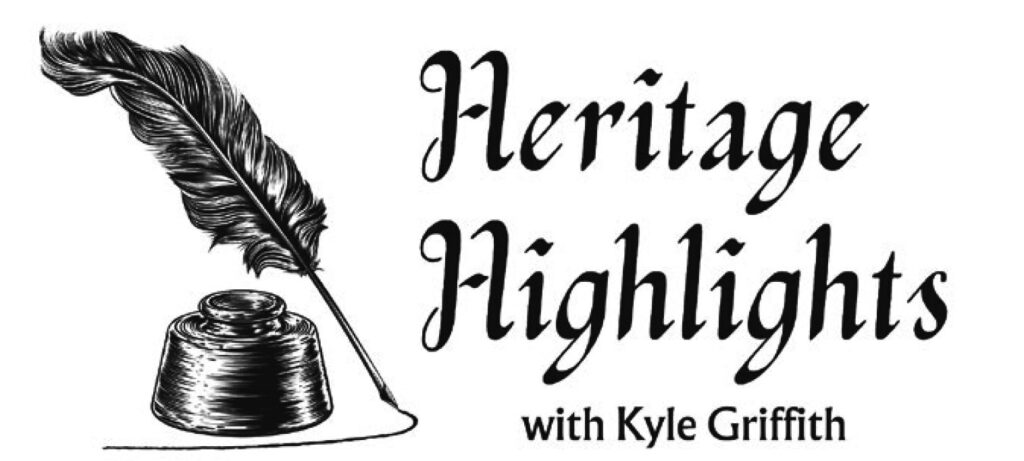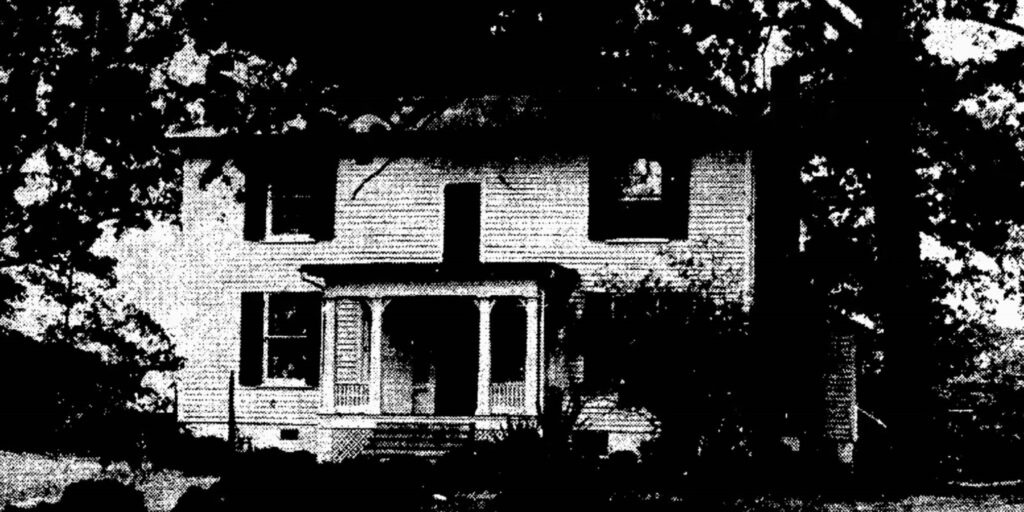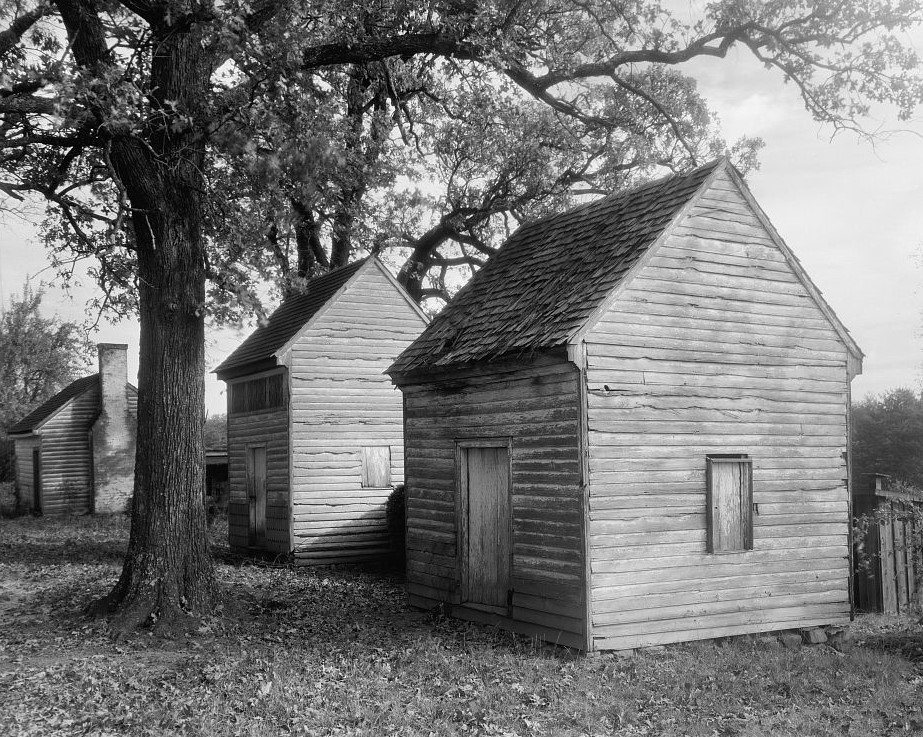
**This research was first published in the September 4, 2024 edition of the Chatham Star-Tribune newspaper as part of Kyle Griffith’s weekly segment entitled “Heritage Highlights.”
A photo of Bachelor’s Hall published in the Danville Bee newspaper on 18 August 1954.
The Bachelor’s Hall community is situated in the southwestern part of Pittsylvania County, about eight and a half miles from Danville. The origin of the community lies in the history of a plantation owned by Mr. Decatur Jones (born 1816 – died 1889). He purchased Bachelor’s Hall in the early 19th century and made many additions to the house as well as developed a successful tobacco manufacturing business. The property became the namesake of the community post office that served locals until 1915 despite a few periods of closure and change. The historic house still remains as a private residence surrounded by old rock walls and boxwoods.
The architecture of Bachelor’s Hall displays a pleasant symmetry across the wide exterior walls. The central double door entrance features sidelights and a transom window under a flat roofed portico with simple tapered columns. Four huge windows illuminate the rooms and give the home a Federal-style appearance, and a narrow door-sized window balances the central area. Two towering exterior end chimneys built of brick remain at each side, and a hipped roof covered in gray asphalt shingles shelters the top. The house has been in a state of restoration and renovation over the past few years with respect to the preservation of its historic attributes.
At Bachelor’s Hall there was a store in which the Coelebs Post Office was established in 1836. The unique name “Coelebs” comes from a Latin adjective meaning “unmarried,” similar to the word “bachelor.” The first postmaster at Coelebs was George W. Dabbs, who was born around 1806. His wife, Mrs. Elizabeth Coleman Dabbs, was a sister of Thompson Coleman who served as postmaster of Danville for twenty-two years. The second postmaster at Coelebs, William Hunt Dupuy, held the position between 1838 and 1846. The Dupuy family had been in Virginia since 1700 when they came from France as Huguenots and populated the Manakin Town settlement on the James River. Decatur Jones, who also had French Huguenot ancestry, succeeded Dupuy as the third postmaster at the end of the year 1846.
The postmaster decided in 1849 to retire the name Coelebs and to instead call it Bachelor’s Hall Post Office. The 1850 census confirms Decatur Jones as a tobacconist owning $5,000 in real estate. He remained postmaster until 1854 when another man with French roots succeeded him–Dr. Peter Dutois Guerrant. Dr. Guerrant served as the local physician for the Bachelor’s Hall vicinity and his tombstone names him as a Reverend as well. He was a second cousin to the aforementioned William H. Dupuy, whose grandmother was a Guerrant. The next postmaster, John R. Keen, succeeded the position in 1860. His aunt Nancy Keen was the wife of Decatur Jones. In 1874, two of John’s cousins George C. Millner and John Pritchett Millner served as the postmasters.
The historic postmaster records indicate that in October 1874 the post office changed names to Brosville. It would seem that the office at Bachelor’s Hall closed while the new Brosville office opened and operated about five miles to the west along the old Martinsville Stage Road. Just three years later, a new post office opened in Motley’s Store under the name of Bachelor’s Hall. The records distinctly separate the two where it would typically state the old office was “re-established,” this entry did not. Postmaster John M. Motley served for a few months until being briefly succeeded by Jerome H. Jones and then Thomas C. Bowe, a brother-in-law to John P. Millner, in 1878.
The post office operated out of Dodson’s Store over the next three decades under postmaster Benjamin Franklin Dodson. The form that Mr. Dodson filled out identified nearby post offices at Cascade, 9 miles west, Mt. Cross, 4 ½ miles northeast, Wenonda, 5 miles south, and Whitmell, 12 miles north. The nearest railroad was the Danville & Western, 5 miles south, at Oak Hill station. In 1907 Bachelor’s Hall was discontinued for several years until Benjamin’s son Otho L. Dodson reestablished the office in 1913. It operated a couple more years and handled mail for about one hundred people in the vicinity. As of 15 November 1915, the office closed for good and directed mail to Danville Post Office.
Click this link to see a 2016 photo of Bachelor’s Hall uploaded to Flickr by a photographer.


